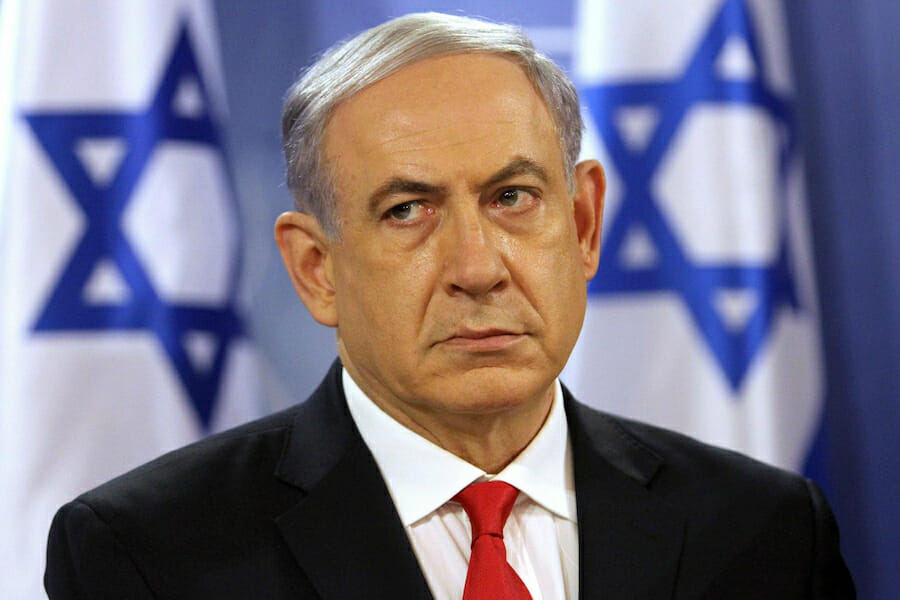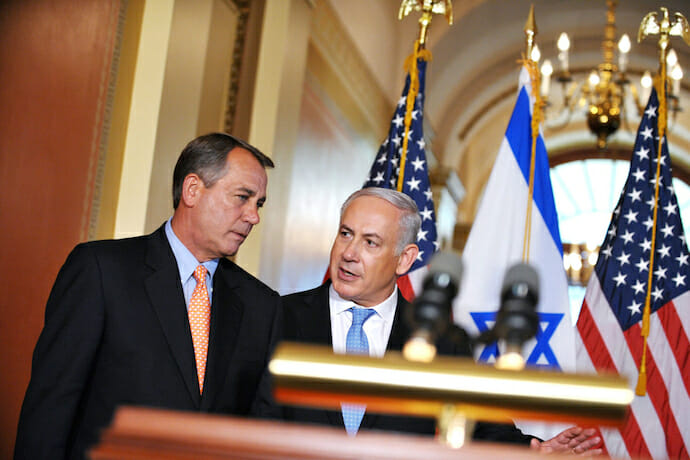
Politics
Is Netanyahu’s Speech Much Ado About Nothing?
In 2009, President Barack Obama and Israeli Prime Minister Benjamin Netanyahu first met in the Oval Office. Shaking hands with one another and smiling, the two heads of state promised to do everything in their power to keep Iran from arming itself with a nuclear weapon. The hopes for that goal have since diminished as conflicting convictions and ambitions have characterized the last six years.
On March 3rd, Secretary of State John F. Kerry will be in Geneva in negotiations with Iran’s Foreign Minister Mohammad Javad Zarif to reach an agreement on the Iranian nuclear program. The June 30 deadline is the goal for cementing the technical details of the agreement if Britain, France, Russia, China, Germany and the United States are successful by the end of March.
Benjamin Netanyahu is scheduled to address a joint session of the U.S. Congress, where he is expected to confront the Middle East policies of Barack Obama and urge lawmakers to prevent the current negotiations with Iran from continuing.
The Prime Minister was invited to address Congress by Speaker John Boehner (R-Ohio), a move that roughly one in two Americans do not support, according to a new poll. Jewish members of Congress have voiced their concern about the unchartered intersection of support for the State of Israel and allegiances to American political parties. In response, at least two dozen lawmakers – mostly Democrats – will not be attending the speech.
National Security Adviser Susan E. Rice has predictably denounced the upcoming address as “destructive” to U.S.-Israeli relations. It was a denouncement later contradicted when John Kerry said the Prime Minister is ‘welcome to speak’ in the U.S. Either way, such verbiage has a corrosive effect on the underlying U.S.-Israel bond that transcends the tenures of Mr. Netanyahu and Mr. Obama.

The White House appears to believe that Netanyahu’s words will neither derail the Iran talks nor sway the U.S. Congress to block a future agreement.
Many analysts are convinced that the speech is merely a cynical stunt to boost the Prime Minister’s reelection chances in a tight March 17 vote in Israel. It would certainly help Netanyahu’s chances if he were to oppose Obama, who is unpopular in Israel, and milk the always-present threat of Iran’s opposition to Israel’s existence. However, the scheduled address risks isolating Israel rather than Iran.
Retired Gen. Amiram Levin — Netanyahu’s former Army commander and ex-deputy Mossad chief — argued in a Tel Aviv press conference on Sunday that the speech will weaken Israel and strengthen Iran. “Iran wants Netanyahu’s speech – since it understands that it will weaken Israel’s bipartisan bond with the US,” Levin said.
In that same press conference, retired Gen. Amnon Reshef, former head of the Israeli army’s armored corps, cautioned that “when the Israeli prime minister argues that his speech will stop Iran from obtaining nuclear weapons, he is not only misleading Israel, he is actually strengthening Iran.”
Recently, a group of 180 retired Israeli generals and former top security officials —including three former heads of Mossad— warned that the address would do more harm than good.
Regardless, the patriot and nationalist Benjamin Netanyahu is standing steadfast. Israel is undoubtedly the greatest military power in the Middle East but it is still light years away from the overpowering military supremacy of the United States. Israel’s capabilities and response time will surely fail it if Iran is secretly racing towards a nuclear weapon. It would be wise for the Prime Minister to heed the words of Levin and Reshef so Israel avoids isolation in a region where it does not enjoy many allies.
If the speech is not well-received in Israel and he loses the general election, U.S.-Israeli relations may very well quickly return to the cordiality as seen after the 1999 and 1992 elections. Of course, if Israel’s Likud and Labor parties later coordinate a centrist coalition, the U.S. may see some relationship improvements. In either case, U.S.-Israeli relations are defined by history not by either Barack Obama nor Benjamin Netanyahu.
